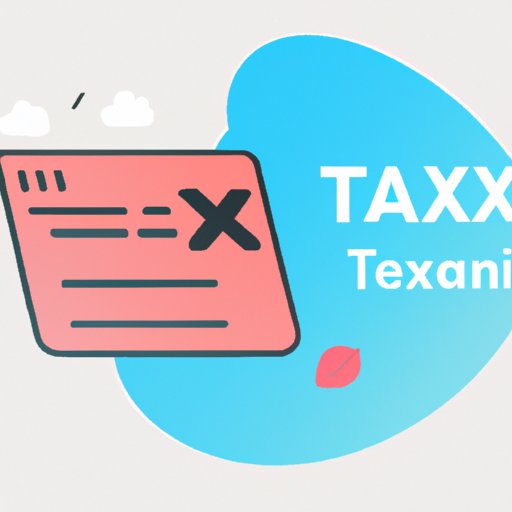
Introduction: Overview of the Issue of Paying Taxes on Crypto Gains
Cryptocurrencies have become increasingly popular in recent years, as investors and traders seek to capitalize on the potential of digital assets. As more people enter the crypto market, it’s important to understand the tax implications of trading cryptocurrencies. This includes understanding how much you owe in taxes on crypto gains and losses, as well as how to accurately calculate them.
It’s no secret that the Internal Revenue Service (IRS) has been cracking down on taxpayers who fail to report their crypto gains and losses. The IRS considers any profits made from cryptocurrency trading to be taxable income, so it’s essential to understand the tax rules surrounding crypto gains and losses in order to remain compliant.
The benefits of understanding and calculating crypto gains and losses for tax purposes include avoiding hefty fines or penalties, being able to accurately file your taxes, and maximizing your financial gain by minimizing your tax burden.

A Comprehensive Guide to Calculating Crypto Gains and Taxes
In order to accurately calculate your crypto gains and losses for tax purposes, it’s important to understand the different types of crypto transactions that are subject to taxation. These include buying and selling cryptocurrencies, exchanging one type of cryptocurrency for another, and using cryptocurrencies for purchases.
When calculating your crypto gains and losses, there are several factors to consider, such as the cost basis of the asset, the fair market value of the asset at the time of sale, and any fees associated with the transaction. It’s also important to keep track of all your crypto transactions, as this can make it easier to calculate your taxes.
It’s also important to understand the tax implications of different types of crypto transactions. For example, if you buy a cryptocurrency and sell it at a higher price, the difference between the purchase price and the sale price is considered a capital gain, which is subject to taxation. On the other hand, if you sell a cryptocurrency for less than what you paid for it, the difference is considered a capital loss, which can be used to offset any taxable gains.
What Are the Tax Implications of Trading Cryptocurrency?
The tax implications of trading cryptocurrency depend on the type of transaction you’re engaging in. Generally speaking, capital gains from cryptocurrency trading are subject to different rates of taxation depending on the length of time you held the asset. For example, short-term capital gains (assets held for one year or less) are taxed at your ordinary income tax rate, while long-term capital gains (assets held for more than one year) are taxed at lower rates.
In addition to understanding the different tax rates for capital gains from crypto trading, it’s also important to know how to report crypto-related income to the IRS. All crypto-related income must be reported on your federal tax return, including any gains from trading cryptocurrency, mining cryptocurrency, or receiving cryptocurrency as payment for goods and services.
How to Calculate Your Crypto Gains for Tax Purposes
Calculating your crypto gains for tax purposes can be complicated, but there are steps you can take to make the process easier. First, determine your cost basis, which is the original purchase price of the asset plus any associated fees. Then, determine the fair market value of the asset at the time of sale. Finally, subtract your cost basis from the fair market value to calculate your gain or loss.
To make the process of calculating your crypto gains and losses easier, there are a number of tools available, including online calculators, tax software, and tracking apps. These tools can help you keep track of your crypto transactions, calculate your cost basis and fair market value, and generate reports that can be used for filing taxes.
A Beginner’s Guide to Paying Taxes on Cryptocurrencies
When it comes to filing taxes on crypto-related income, there are several important things to keep in mind. First, make sure to accurately report all your crypto-related income, as failure to do so could result in hefty fines or penalties. Secondly, make sure to take advantage of any deductions you may be eligible for, such as capital losses or expenses related to crypto trading.
Finally, be aware of some of the most common mistakes people make when filing their crypto taxes. These include not keeping accurate records of transactions, not reporting income from crypto-related activities, and not taking advantage of deductions or credits.

Understanding Crypto Tax Rules: What You Need to Know About Crypto Gains and Losses
Crypto tax rules can be complex and ever-changing, so it’s important to stay up to date on the latest developments. To do this, you can consult the IRS website for guidance on filing taxes on crypto-related income and check out online resources such as blogs, podcasts, and webinars to learn more about crypto taxes.
You may also have questions about specific aspects of crypto taxes, such as how to calculate your cost basis or how to report income from mining or staking. To get answers to these questions, you can consult with a tax professional or use online resources such as forums, Reddit threads, and YouTube videos.
Conclusion
Paying taxes on crypto gains can be a complex process, but understanding the basics can help ensure that you remain compliant with IRS regulations. This article provided an in-depth guide to understanding and calculating crypto gains and losses for tax purposes. We discussed the different types of crypto transactions that are subject to taxation, the factors to consider when calculating crypto gains and losses, and the tax implications of trading cryptocurrency. We also looked at how to calculate your crypto gains for tax purposes and provided a beginner’s guide to paying taxes on cryptocurrencies. Finally, we discussed understanding crypto tax rules and the resources available to stay up to date on the latest developments.
By understanding the basics of crypto taxes and staying current on the latest developments, you can ensure that you are properly filing your taxes and minimizing your tax liability. This will help you maximize your financial gain from trading cryptocurrencies and remain compliant with IRS regulations.
(Note: Is this article not meeting your expectations? Do you have knowledge or insights to share? Unlock new opportunities and expand your reach by joining our authors team. Click Registration to join us and share your expertise with our readers.)
